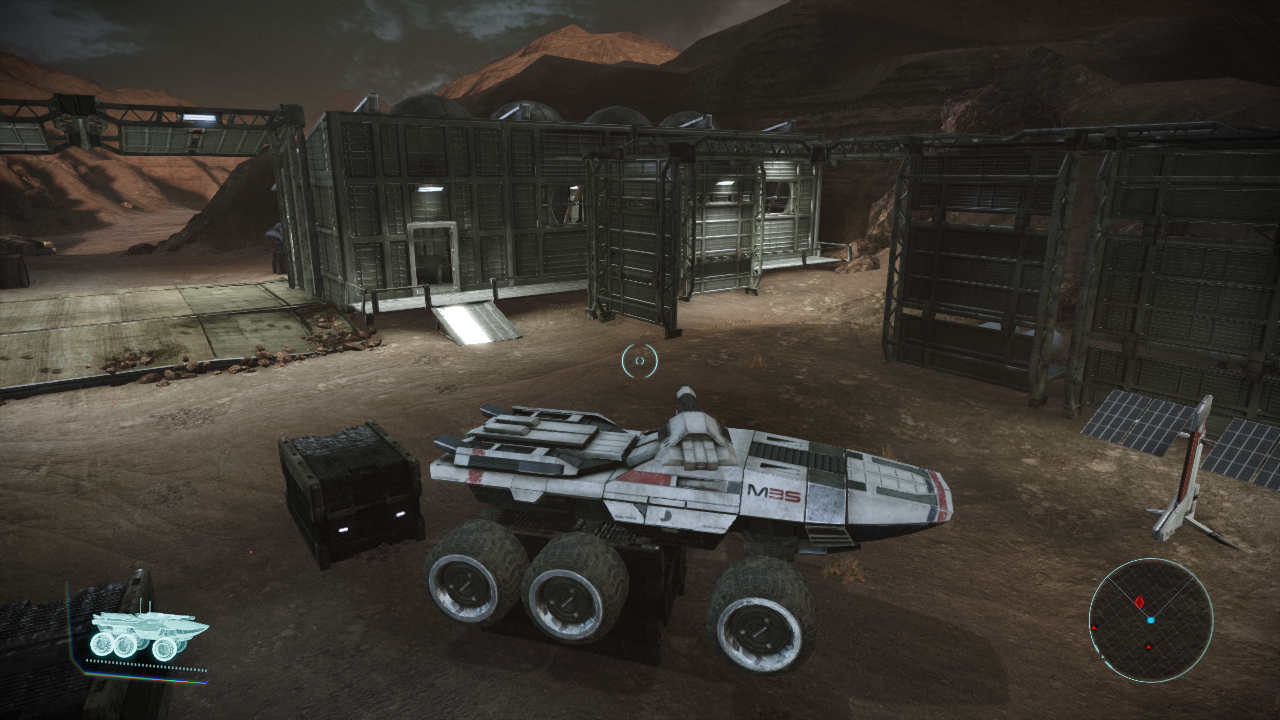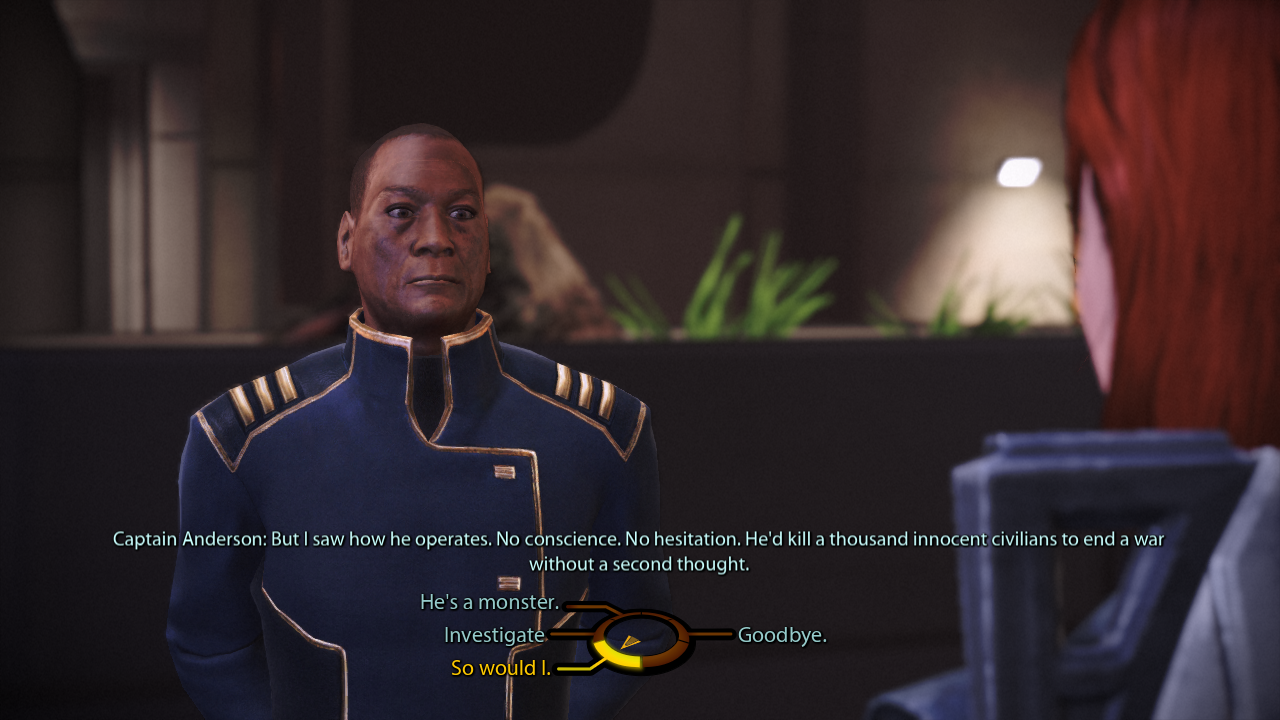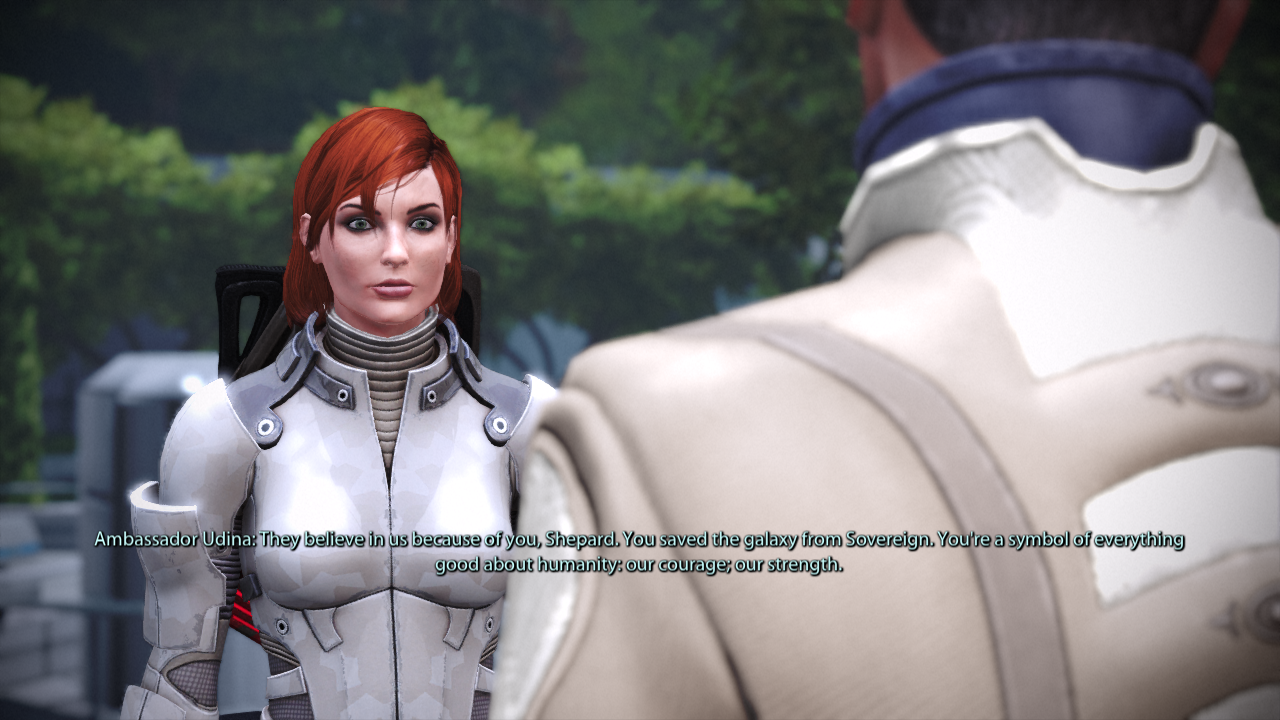Mass Effect 1 Is Not Fun. It Is Not Innovative. It Is Not Interesting. It Sucks At Everything It Sets Out To Do. It Is Content
5 5月 2024

This game is a war crime in the history of narrative design. This game is a black hole of money and talent. This game is the antithesis of video games.
I was promised something big.
I don't play AAA video games that much, but I do play them when I want to chill out and get lost in the spectacle. I enjoyed the Arkham trilogy and was impressed by how they intertwined the cinematic sequences with the game mechanics to create a complex portrait of Batman. I loved Final Fantasy 7 Remake, which recreated my childhood memories in a big and beautiful playground. While I'm skeptical of corporations, I respect the money that goes into creating lush and vibrant worlds with interesting gameplay that enhances the story.
I think AAA games, for better or worse, understand that their almost infinite budgets can create unique scenarios where the level of interactivity is matched with high fidelity graphics and polished gameplay. Sure, there are independent games that allow for deep player expression, but seeing your actions affect the high-resolution models of the world and your character is extremely evocative. There are text adventure games where you can choose how to dress, but it doesn't feel as meaningful as a character creation screen with 4K graphics.
AAA games justify their bloat by becoming great blockbusters. They want you to feel comfortable and engaged while you eat your popcorn and go wow. You stop thinking about the world outside the screen and, for a little while, you indulge in escapism.
I wasn't able to do that with Mass Effect 1.
The game begins with your protagonist who is already considered a war hero. Humans and aliens, even the haters, admire them. Everyone talks about how incredible they are on the field and that's why they're getting nominated to the Specter position. Your character stands on a pedestal without any interaction.
This bothered me because I hadn't even gotten familiar with my protagonist and now I'm told that they're a coveted figure in the cosmos. I felt detached from my avatar. I was supposed to roleplay as Shepard, but I didn't know who they were, and the choices didn't reflect my own thought processes.
The game lost me even more when Jenkins, a kid who wants to see some action, got shot. It was strange that the narrative assumed I cared about him, especially after the mission was over. Indeed, the many deaths and sacrifices that appeared on screen were given so much gravitas that I thought I should've cared as a player. I felt like I was missing something that made me care about the characters, and it's entirely possible that I did, but I kept thinking that I wasn't interacting with the game mechanics in any meaningful way outside of combat.
Speaking of which, there are very few tutorials in the game: you get a couple discussing combat and the map, and that's about it. I didn't understand how equipment or upgrades worked. The Mako (everyone's favorite vehicle) doesn't even get tooltips explaining the key inputs, and it took me seven hours to figure out that it can shoot cannons.
All of this made me feel like the game was not interested in what the player thought about its systems. It seemed to expect you to steamroll through the game, no questions asked. These finicky mechanics are certainly important on higher difficulties, but they don't seem necessary to complete the game on standard difficulties. It makes me wonder why the game even has so many mechanics if the player can just ignore them.
And ignore, I did.
Paradoxically, this made the game more responsive. The game's UI is extremely clumsy because it's trying to reinvent how menu screens work. Mass Effect 1 wanted to redefine how players interacted with everything from dialog to tactics to menus because everyone was talking a lot about how we had to start from scratch around that period.
What this usually means is that the left analog will point the cursor to the option you want to select. Once the novelty wore off (that is, a few seconds later), I realized that this was more effort than scrolling down a list of choices; it reminded me of the Metaverse VR crap that didn't take off because people found it easier to type text into the address bar and use the mouse to add items to their shopping cart than to gesticulate a million ways to do the same thing.

This creates profound problems for Bioware, a studio known for hiding delicious world-building details in dialog screens. They can't list, say, eight text options on that puny dialog screen (four is possible but stretching it), so they have to hide the rest in the bland and unremarkable "Investigate" option.
If you're interested in a character's life history or the cultural history of alien species, you'll have to get used to selecting "Investigate" and choosing your option there. After your interlocutor speaks, you will be booted to the root of the dialog tree and have to navigate back to "Investigate". The first few times are irritating, but imagine wanting to know about every alien and human NPC out there: you'll probably want shortcuts if you don't hate your thumb.
So, contrary to my love of NPC dialogue, I stopped talking to almost everyone who wasn't relevant to the main plot. It's a shame since some of the most colorful dialog were hidden in the recesses of some dialog tree. Using this tedious dialog wheel was just a chore.
Wasn't the promise of blockbuster media supposed to give me a reprieve from the real world? Why was I thinking of ways to avoid dialogue when that was supposed to be the appeal of an RPG?
Why would anyone find this game fun?
This was the question that kept running through my mind as I progressed through the game.
Aiming guns in this game doesn't feel good, whether I'm playing with a controller or a mouse. Simply aiming the reticle at an enemy isn't enough as each weapon has an ambiguous accuracy rating. None of the weapons feel great to use either: the assault rifle is flaky and goes all over the place, the shotgun doesn't do enough damage, and the sniper rifle isn't always accurate because of the RPG mechanics. The pistol turns out to be the most reliable weapon in the whole game because the recoil isn't bad and you can shoot it repeatedly without overheating.
However, it is much better to instruct your party members to use their skills to destroy enemies by going to the Tactics screen and pausing the game ala Baldur's Gate. The game never explains tactics (why would it explain an essential mechanic?) nor does it feel responsive to target enemies with said skills.
I reluctantly lowered the combat difficulty to easy because I just didn't find the combat engaging, and I certainly didn't find running through the same bland copypaste corridors with the same cover interesting. The game also rarely autosaves: it only does so for some story content and when entering a new map screen, so I wasted several minutes on sidequests. I was so put off by the stinginess of the autosaves that I stopped doing sidequests altogether -- another example of how ignoring the game makes it run smoother.
I also stopped searching for treasure chests because the loot they gave me was trash. I was supposed to get better weapons and armor (you get vertical progression in the game through equipment), but the quality was so random that as soon as I got equipment that felt tolerable to me, I stopped. I ignored obvious branching paths that pointed to treasure and beelined to the goal.
The more I played this game and the more I was told that my character was a hero, the less I felt like a hero. When my player character took the helm of the ship, I groaned when I saw the galaxy map littered with planets that you could never visit (you could read ChatGPT-style entries about those places instead!!!), and all I wanted to do was access the relevant areas. When I saved a colony from the antagonists, I felt hollow because the one colonist who hated you now appreciated you, and I realized the character was designed to pander to you. When I convinced my buddy Wrex to put down the gun, I felt depressed because he learned that the antagonist had found a cure for the virus the Council used to prevent his race from overpopulating, and all I could do was tell him he was wrong.

I just didn't understand who my character was anymore. What was I even playing? I thought I was supposed to be a space cop, not a visitor to the worst theme park of all kind. Even playing a rogue cop who kills terrorists didn't help me deal with the dissonance. And I can't imagine that most people, even fans of the series, wanted the game to be this way.
Who was this meant for?
I tried to understand Mass Effect 1 as a game, but I couldn't.
And I don't believe it recognizes it's a game either. It has no interest in making itself playable, let alone being fun. Instead, I realized what the game was when I reached the ending of the game.
I took down the big baddie of the game in the midst of a 9/11 allegory. I could decide the fate of the Council and I was surprised that I could do this. I picked to let the Council die and the game showed their demise.
I looked at the screen in dismay. The Council was the organization the game had been building up to all this time: I became familiar with their antics, they were the gatekeepers of galactic politics, and they were my player character's superiors. But I, the player, chose to end their lives.
Someone has told me this is simply a cosmetic choice in the future games, but it doesn't matter for me right now. What's important to me is that I could just wipe out an entire political system with one flimsy choice.
I could bring up how stupid the Conduit reveal was, how generic the alien worlds you visit are, how the self-insert writing would be laughed out of Narou, how the plot can be summed up as "Thanos just appeared at the end and we need to fight him", and so many countless crap. But the fact that I could just bend a well-defined setting to my will was the most egregious sin the game ever committed: it meant that nothing mattered because the world revolves around me, the player.
I wasn't playing a video game. I was playing Mad Libs. I didn't have to worry about gameplay systems or dialogue because Mass Effect 1 had one goal in mind: to give the player free rein. It's more than happy to let players abandon worldbuilding details, gameplay mechanics, and flavor text because it's so pandering to the player that it's happy to lose its own identity as a game. When I ignored much of the game, that's Mass Effect 1 working as intended: it doesn't penalize you for not reading the codex or exploring optional locations because the most important aspect of the setting is you, Shepard. As long as the game doesn't stop focusing on you, everything is on the table.
You control Mass Effect. You make Mass Effect work or not work. It's your Mass Effect.
It's your Content.
I don't play games to experience some higher artistic purpose. I certainly don't make them because I have an artistic statement to make.
If anything, my interest in games comes from the simple desire to see my interactions set off a chain of reactions that change the state of the game. There's something beautiful about seeing the game respond to your actions, whether it's a boss being combo-ed by your character or the click of a switch in a hardcore puzzle game.
I am particularly fascinated by the possibilities of narrative design because you guide the story as the story guides you. It makes sense to design systems that allow that interaction to flow smoothly or be interrupted to create new feelings. When a visual novel makes good use of auto-read and unfolds new CGs in a pivotal section, I applaud the developers for pulling it off.

But Mass Effect 1 doesn't want that. It wants to please the player by letting them dictate what is important in the game -- in other words, it wants the player to be its narrative designer. The developers have relieved themselves of the responsibility of designing the narrative and that means allowing the gameplay to be optional.
I know I'm being unfair to the game, so I must give it credit for doing something that critics, fans, and commentators have neglected to mention: it has pioneered what it means to be content fodder.
Mass Effect 1 is designed like those video essays that turn out to be summaries of movies and video games. You feel like you're experiencing something, but you aren't. You're just swimming through the canals and sewers of Content.
And you know what? Mass Effect 1 is really good at that. It's the perfect embodiment of wasting time and that's what the game market wants right now: a good old-fashioned piece of luxury commodity with none of that artful stuff.